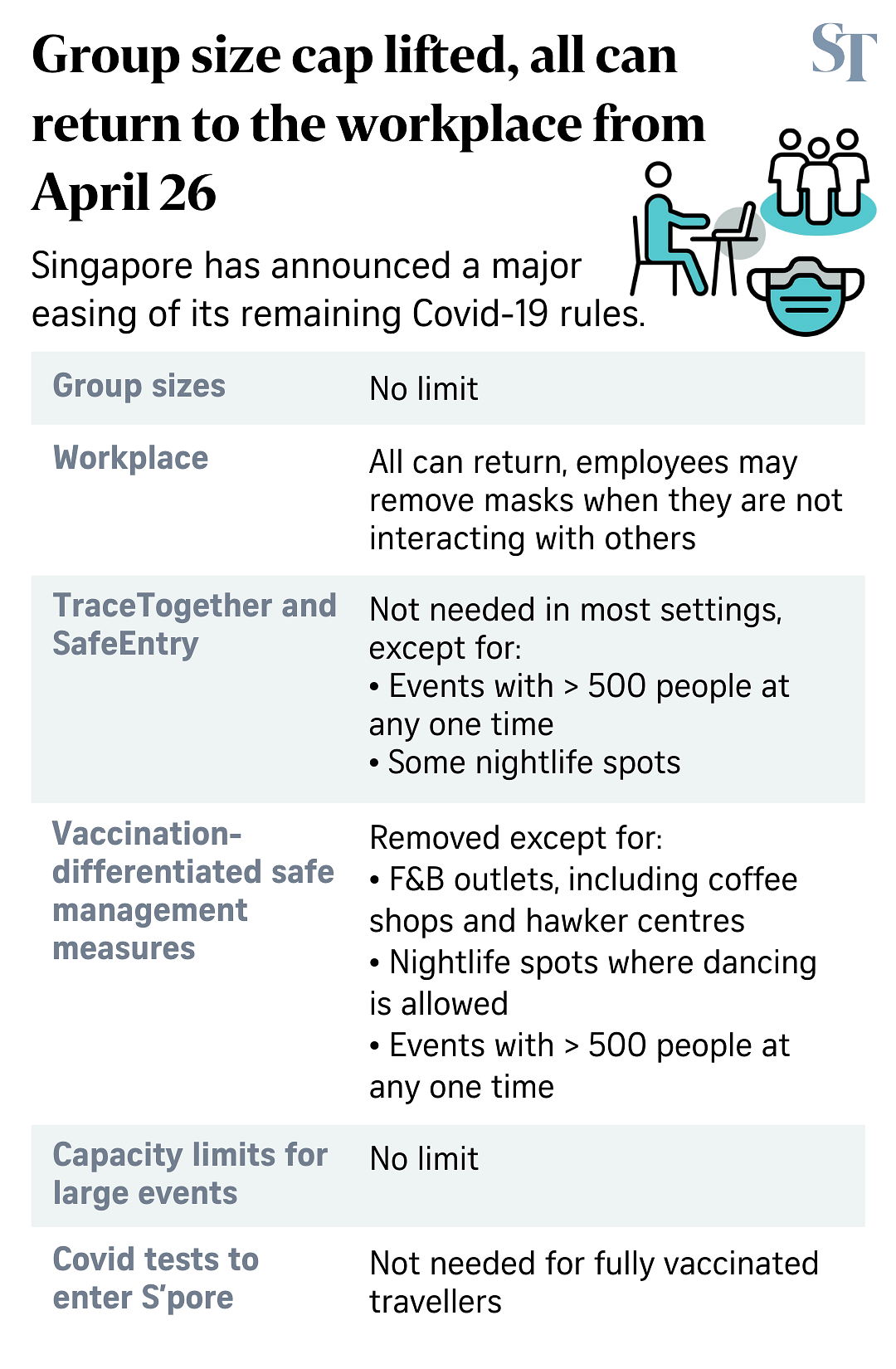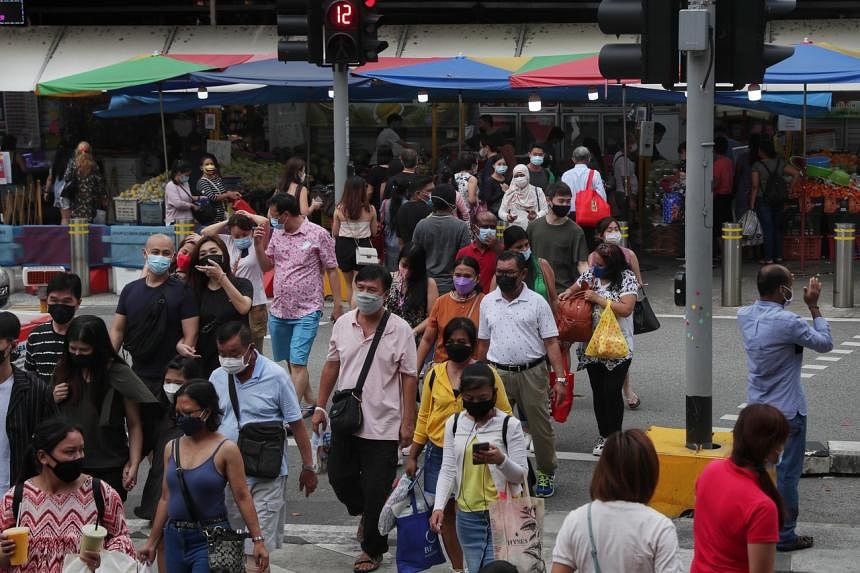SINGAPORE - Even as Singapore moves decisively to ease Covid-19 measures further across the board, there is still a need to be alert to potential risks in the future, said Health Minister Ong Ye Kung on Friday (April 22).
This is why Singapore will not declare a "freedom day" until the pandemic is truly over, he said, adding that the approach is, instead, to step down but not dismantle the measures completely.
The minister was speaking during a press conference held by the multi-ministry task force on Covid-19, which he co-chairs.
One immediate risk facing some countries is the resurgence of the Omicron infection wave.
Mr Ong said parts of the United States are already seeing this new wave, fuelled by the Omicron BA.2 strain, which is related to the original Omicron variant known as BA.1.
This is less of a concern for Singapore as the Omicron wave seen here was already driven by the BA.2 strain, Mr Ong said.
But he added that a new wave could emerge some months down the road when the protection conferred by vaccines and past infections begins to wane in the local population.
A more worrying possibility - the emergence of a new variant of concern.
"This continues to be a potential curveball that may knock us back to square one and we must be alert to these risks, remind ourselves not to be complacent and to be alert to possible future dangers," said Mr Ong.
He added that the authorities will look closely at two characteristics: whether any new variants can lead to more severe illnesses and deaths among those infected, and whether it is more infectious.
If a new variant causes more severe illness, Singapore may have to respond by bringing back contact tracing, isolation, quarantine and testing.
Such a variant will be short-lived if it cannot overtake the currently dominant Omicron variant, but Mr Ong said it is entirely possible for both a more deadly and more transmissible variant than Omicron to emerge.
"We may then need to hunker down for six months or more while scientists develop a new variant-specific vaccine," he said.
"This is one of the worst-case scenarios that we need to be psychologically prepared for."
Despite these potential risks, Mr Ong struck an optimistic tone.
"On the whole, things continue to look up for us. Our social resilience is strong and now we are in a comfortable position."
He said the current coronavirus situation here is stable despite an earlier easing of measures on March 29, with new cases staying around 3,000 a day.
This shows the population is now more resilient to the virus, he said, adding that the hospital situation is also steadily improving.
Read next - S'pore eases most Covid-19 rules from April 26: What you need to know


